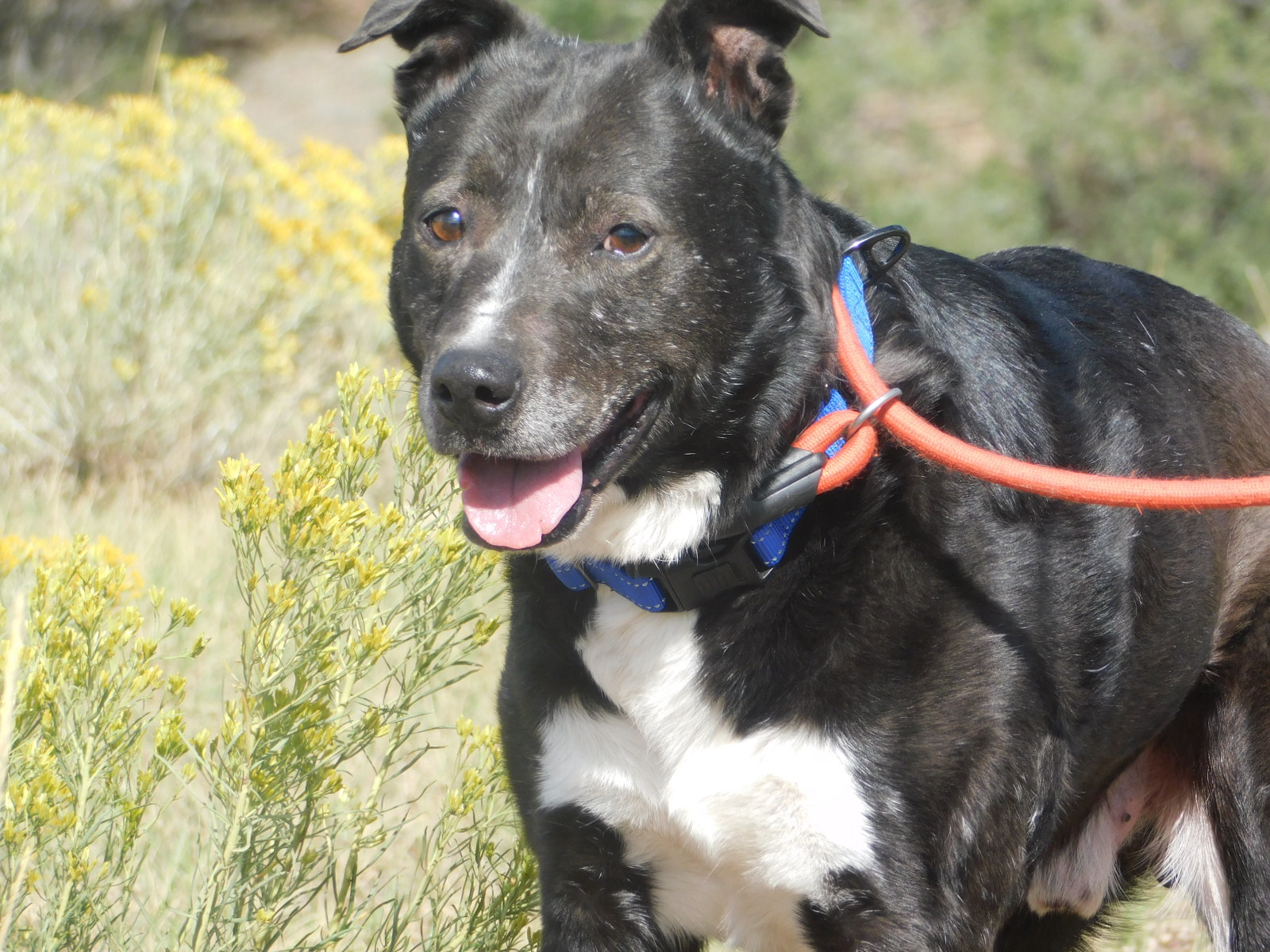
06 Oct Second Chance: Designing Dogs Does Not Always Work
I am a mutt and proud of it. I don’t intend to trash talk the purebred dog, but for this week’s Pet Column topic I thought you should be aware of what the growing demand for designer dogs – crossing purebreds with other kinds of purebreds – is doing to all dogs. From overcrowding shelters with unadoptable “designs” gone wrong to dogs living a life of suffering because of their failed “design,” I can help you avoid these pitfalls.

Tesla
According to the New York Post, the labradoodle became America’s second-favorite dog in 2010. But the man who first invented the breed by crossing a Labrador with a poodle in the ’80s ended up regretting it:
“I opened a Pandora’s box, that’s what I did,” said puppy-breeding manager Wally Conron in 2014. “So many people are just breeding for the money. So many of these dogs have physical problems and a lot of them are just crazy.”
Originally, Conron’s creation came from a desire to do good. He was fulfilling a request from a couple who needed a pooch that would serve as a guide dog for a blind woman, but also be hypoallergenic for her husband.
Once the magic canine was produced, word got out and everyone wanted one. There was just one problem: Labradoodles don’t come out the same way every time. Their coats — and their behavior — are actually unpredictable; some aren’t even hypoallergenic. Ever wonder what happens to those who don’t come out as predicted?
But I do not want to just pick on Labradoodles: miniature Yorkies, Pomeranians and Chihuahuas, often seen hitching a ride in celebrity purses, are created by breeding runts with runts. Runts are usually the unhealthiest dogs of the litter and those health problems are passed down. Teacup mothers often die giving birth.
The high price of cute, according to Madeline Bernstein, author of “Designer Dogs by Demand”:
”Demand for these dogs has led to a corrupt underground economy that funnels animals through puppy mills, swap meets, Internet sales and retail stores that often buy from disreputable sources.”
Purebred dogs often incur health problems, with French bulldogs being one of the most prominent examples. Their increasingly flattened noses make breathing difficult, while their distorted body shapes mean natural mating is now impossible. (Artificial insemination is used instead.) When it is time to give birth, mother dogs must have C-sections, because French bulldogs’ heads are too large for a natural delivery.
So, of course I would always recommend people adopt from a shelter. But if you have your heart set on a labradoodle, a goldendoodle, a puggle or a maltipoo just make sure you find a reputable breeder. Responsible breeders do not sell their dogs over the Internet (although advertising their business online is fine). They shouldn’t ask you to meet in a parking lot (it is more common than you think). They’ll deal in one or two breeds — not several. There should not be multiple litters available; you may have to wait for one.
You should also be allowed and encouraged to look around the breeder’s property. And you should be able to ask for references from past customers. Take your time and find your new forever friend the right way.
Or just adopt me. My name is Tesla. I am a five year-young, black-and-white lab mix. I arrived at Second Chance as a stray and get along well with other dogs who are calm, but I really would prefer my new family to not have other dogs. I walk well on a leash and love belly rubs, kicking it with my peeps and hiking.

Morris
Or adopt a non-designed cat like Morris, a nine-month-young, beautiful male orange tabby also at Second Chance. While waiting for his new family Morris currently resides in a communal room where he gets along well with other cats, although he tends to be a bit of a loner. Morris is simply a quiet boy who enjoys playing and cuddling with his human friends.
Vetting the Vet: Dr. Michelle Dally, DVM, J.D. is Medical Director of Second Chance Humane Society. She also has a private practice, Dally Veterinary Medicine, 333 S. Elizabeth Street, Ridgway, Colorado. Her service area is San Miguel Mesas, Placerville, Ridgway, Ouray, and Montrose. For more on Dr. Dally, go here.

Michelle & Wallowby


Sorry, the comment form is closed at this time.